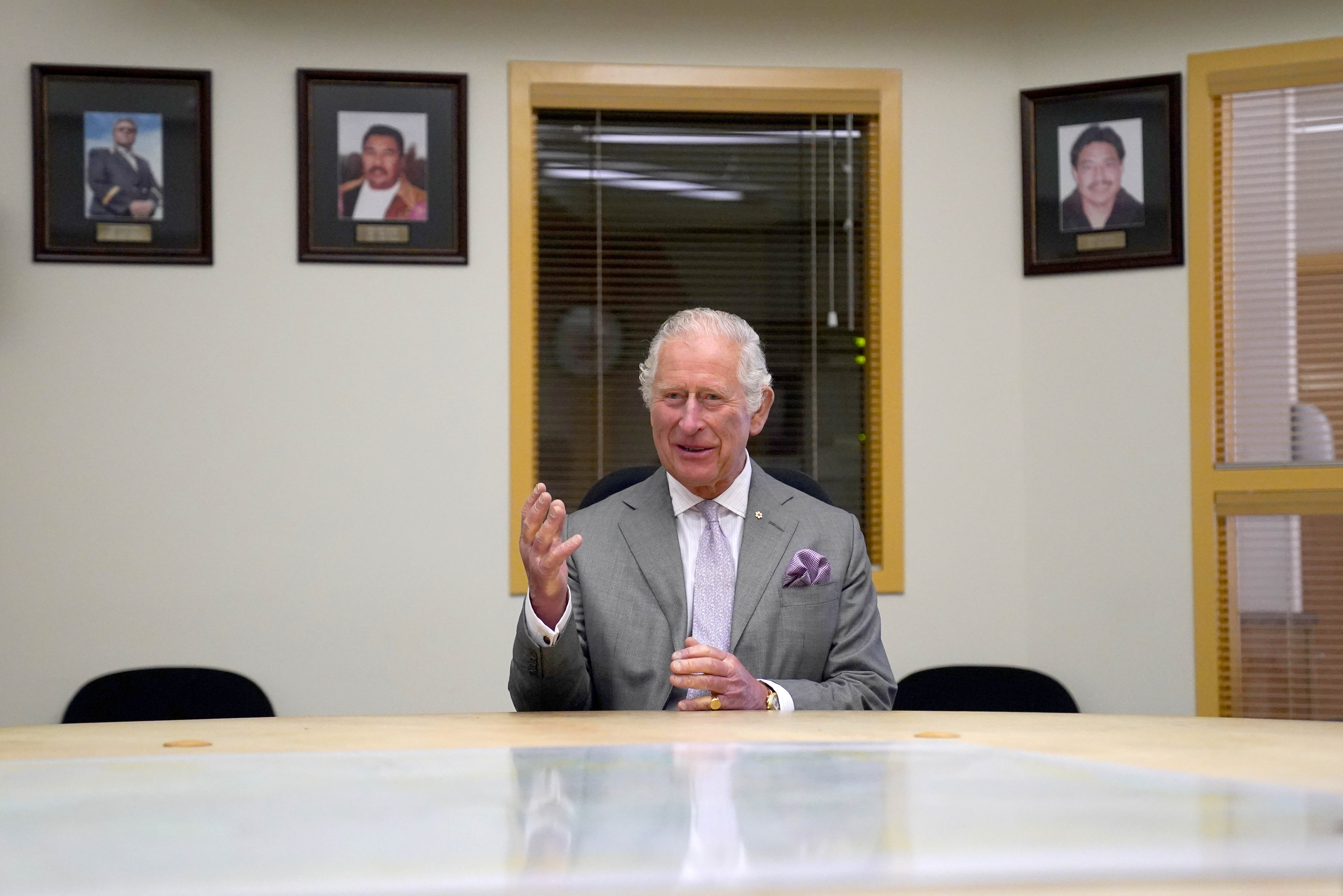Charles urges nations to ‘learn from traditional knowledge’ to save the planet
The royal held up the example of ‘indigenous knowledge keepers’ as those with the skills to bring humanity back from the brink.

Your support helps us to tell the story
From reproductive rights to climate change to Big Tech, The Independent is on the ground when the story is developing. Whether it's investigating the financials of Elon Musk's pro-Trump PAC or producing our latest documentary, 'The A Word', which shines a light on the American women fighting for reproductive rights, we know how important it is to parse out the facts from the messaging.
At such a critical moment in US history, we need reporters on the ground. Your donation allows us to keep sending journalists to speak to both sides of the story.
The Independent is trusted by Americans across the entire political spectrum. And unlike many other quality news outlets, we choose not to lock Americans out of our reporting and analysis with paywalls. We believe quality journalism should be available to everyone, paid for by those who can afford it.
Your support makes all the difference.The Prince of Wales has urged nations to “learn practical lessons from traditional knowledge” to help save the planet as he visited a remote Canadian community living with the cost of climate change.
Charles held up the example of “indigenous knowledge keepers” as those with the skills to bring humanity back from the brink, as he learned how rising temperatures are threatening an “ice road” providing a vital connection for villagers to the outside world.
In a speech to mark the end of his three-day tour of Canada with the Duchess of Cornwall, Charles also “acknowledged” the suffering of survivors of the country’s residential school scandal that saw thousands of indigenous children die or be abused over decades.
We must listen to the truth of the lived experiences of indigenous peoples, and we should work to understand better their pain and suffering
His comments came after he faced calls from an indigenous leader for the Queen to apologise for the “genocide”.
During their visit, the prince and duchess met those who experienced abuse at the schools and in his address Charles said: “We must listen to the truth of the lived experiences of indigenous peoples, and we should work to understand better their pain and suffering.”
Speaking at a Platinum Jubilee ceremony at the Ceremonial Circle in Yellowknife, Charles sounded a pessimistic note about the future of the planet.
He said: “I am afraid that climate change and biodiversity loss know no borders; global markets and supply chains are deeply inter-connected and time is rapidly running out.
“To succeed, we will need to restore our relationship with nature, challenge the status quo, innovate new business and financial models, work across borders at scale and ensure a just and sustainable transition for all.”
During his final day in Canada the prince went to the site of the ice road that connects the small community of Dettah with Yellowknife, the capital of the Northwest Territories, and met experts who described the impact of climate change on the road across the Great Slave Lake.
When the five-mile long road is a metre thick with ice it can support articulated lorries and historically would open in late December but in recent years the opening has been delayed to January.
Charles heard how indigenous communities are in danger of being cut off in parts of the Northern Territories due to melting highways which have caused dangerous flooding in the region.
Julian Kanigan, director of environmental stewardship and climate change for the Government of the Northwest Territories, told Charles: “Science can only tell you so much but we are always trying to tap in to what the indigenous people know through generations of lived experience knowledge to tell us how the landscape is changing in this part of the country.”
In his speech Charles went on to say: “I can only say how strongly I would encourage the leadership of the Northwest Territories to address this challenge by working alongside indigenous knowledge-keepers to restore harmony with nature, while also looking at vital community-scale renewable energy solutions to reduce greenhouse gas emissions such as biofuels, hydropower, solar and wind.
“We simply must learn practical lessons from traditional knowledge, through deep connections to land and water, about how we should treat our planet and, above all, recognise the vital importance of taking into account the seventh unborn generation.”
Canada is dealing with a national scandal stretching back decades that saw thousands of indigenous children die or be abused in the residential school system, with hundreds of human remains discovered last year at former church-run schools.
When the couple first arrived in the country they visited a Heart Garden in the east coast settlement of St John’s, dedicated to the victims of the residential school scandal, and met survivors during a ceremony of remembrance in the open space.
The prince said in his speech to Yellowknife residents: “It has been deeply moving to have met survivors of residential schools who, with such courage, have shared their experiences.
“On behalf of my wife and myself, I want to acknowledge their suffering and to say how much our hearts go out to them and their families.
“All leaders have shared with me the importance of advancing reconciliation in Canada. We must listen to the truth of the lived experiences of indigenous peoples, and we should work to understand better their pain and suffering.
“We all have a responsibility to listen, understand and act in ways that foster relationships between indigenous and non-indigenous peoples in Canada.”
Later, a small group of dignitaries watched as Charles and Camilla walked up the steps to their jet taking them home. As they reached the top, they turned and Charles waved goodbye to Canada.